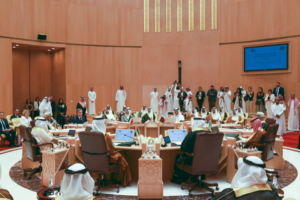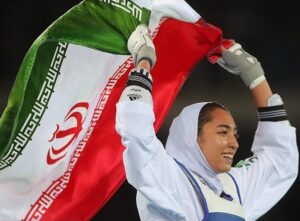The War of Four Battles
Analyzing it from a big picture perspective, this war will impact the region along “four battles”: battle of food and fuel, battle of narrative, battle of autonomy, and battle of attention.
First, the battle of food and fuel refers to the devastating impact on countries such as Egypt, Lebanon and others that are heavily dependent on wheat imports from Russia and Ukraine. As a result of the war, these countries and other weak economies have become more vulnerable to economic shocks and disruptions to supply chains. In the long run, the war may have catastrophic impacts on social contracts already under political and economic pressures and may trigger new waves of social unrests like the uprisings of 2011.
Second, the Russian invasion of Ukraine is also a battle of narrative as to who is responsible for the start of the war. Through my work in the region, engagement with policy makers and analysts and anecdotal evidences, I see that contrary to the view in the west where by and large there is a consensus that Russia is the only culprit, and hence (at least for now) there is political and public support for Ukraine, the standpoint in Middle East and Mediterranean is less clear cut and more ambiguous with some blaming the West for the Russian invasion due to NATO expansion to the east and “cornering Russia”. The prevailing of this perspective is partly due to the reporting of Russian media outlets such as Russia Today, partly due to political and nostalgic reasons dating back to the days of relations with the Soviet Union, and finally because of widespread, stubborn anti-Western sentiments and conspiracy theories on the role of the West in “creating crises” for own strategic interests.
Third, on geopolitical level, the Ukraine conflict has provided diplomatic space to countries such as Saudi Arabia and United Arab Emirates to temporarily hedge their bets, chart a middle ground, gain more political autonomy on foreign relations, and as a result accelerate an ongoing strategic trend aimed at decreasing dependence on the west and diversifying political and security alliances. In this regard two developments stand out. At the start of the war, in an unprecedented move, reportedly Saudi and Emirati leaders refused to talk to President Biden and support the western policy against Russian invasion. In October, Saudi Arabia and its allies in OPEC+ groups that also includes Russia rejected US calls to boost oil production-instead they decided to slash oil production by 2 million barrels a day.
Fourth and finally, as the west is literally consumed by the political and energy impacts of the war on its own economies and societies, and the prevailing policy that it can’t lose this war with Russia, there is increasingly less and less political, humanitarian, development and funding attention and support to address devastating, protracted conflicts in the region including in Syria, Libya, Yemen and beyond. Going forward it is expected that this strategic trend will only increase. At this stage, it is hard to imagine how and when the Ukraine war will end. But it is not that difficult to think that the post-war recovery and reconstruction of Ukraine, the new “Russian Question’ and long-term containment of Russia (a well as dealing with China) will shape and determine the geopolitical calculations of the west to the strategic detriment of Middle East and Mediterranean.



